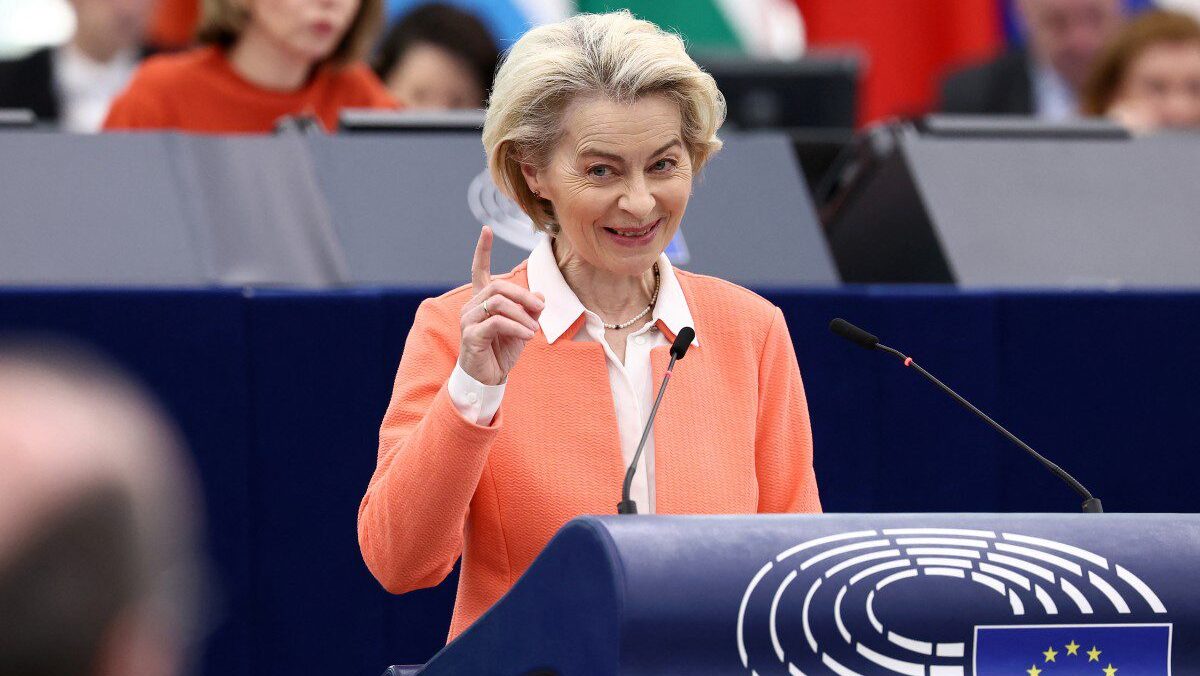
European Commission President Ursula von der Leyen speaks as part of a plenary session at the European Parliament in Strasbourg on March 12, 2024.
Photo: FREDERICK FLORIN / AFP
As the pivotal European elections draw near, and with anti-mass migration parties projected to secure as many as a quarter of parliament’s seats, Eurocrats, after years of encouraging and facilitating the ongoing migration crisis, are hastily trying to project the image that they, too, care about halting the civilization-altering influx of migrants.
To convey this impression to the European public, who increasingly appear to view the national Right as the only political camp with the will to address the issue, six EU leaders traveled to Cairo on Sunday, March 17th, to ink a €7.4 billion agreement with Egypt’s government aimed, nominally, at stemming migration flows.
Sunday’s meeting and agreement came after “intense, effective diplomatic work” between the EU and Egypt over the past few months, said Italian Prime Minister Giorgia Meloni who, despite campaigning as an anti-mass migration hardliner, not only has overseen a sharp uptick in illegal migration but has also introduced legislation that could result in the arrival of 1.5 million new migrants through legal channels.
Meloni, along with EU Commission President Ursula von der Leyen and the prime ministers of Greece, Austria, Cyprus, and Belgium met with Egyptian President Abdel Fattah el-Sisi before the signing ceremony.
Like Brussels’ past less-than-successful agreements aimed at curtailing migration into the continent—like those made with Turkey and Tunisia—this deal, again, primarily entails the EU handing over loads of cash with the hope that the recipient country—Egypt in this case—uses some of it to reduce migratory pressure on Europe.
According to a summary of the plan published by the EU, the proposed funding meant to prop up Egypt’s struggling economy includes €5 billion in soft loans, €1.8 billion in investments, and €600 million in grants, of which €200 million is to be allocated to managing migration. Aside from migration management, the partnership seeks to boost cooperation in sectors like renewable energy, trade, and security.
Partnerships like this are the “best way to address migratory flows,” Meloni claimed, adding that the agreement marked a “significant step toward an integrated partnership” to address the regional challenges.”
Von der Leyen, for her part, underscored the “strategic location” of Egypt in a “very troubled neighborhood,” and the “vital role” it played in the “stability of the region.”
The EU-Egyptian agreement comes amid growing concerns that Israel’s expected ground operation in Rafah, the southernmost city in Gaza, could result in thousands of refugees fleeing into Egypt’s Sinai Peninsula.
Although Egypt’s Mediterranean coast has not served as a major point of departure for EU-bound migrants in the past, European leaders fear that, given that the country is already hosting 9 million migrants while facing migratory pressure from the region, this could easily and quickly change.
So far this year, the Greek islands of Crete and Gavdos have witnessed a sharp uptick in illegal migrant arrivals, most of whom are from Egypt, Pakistan, and Bangladesh.
“We must prevent the opening of new migration routes, and we will work very closely with Egypt to ensure that this will be achieved,” Greek Prime Minister Kyriakos Mitsotakis said during the meeting in Cairo.
